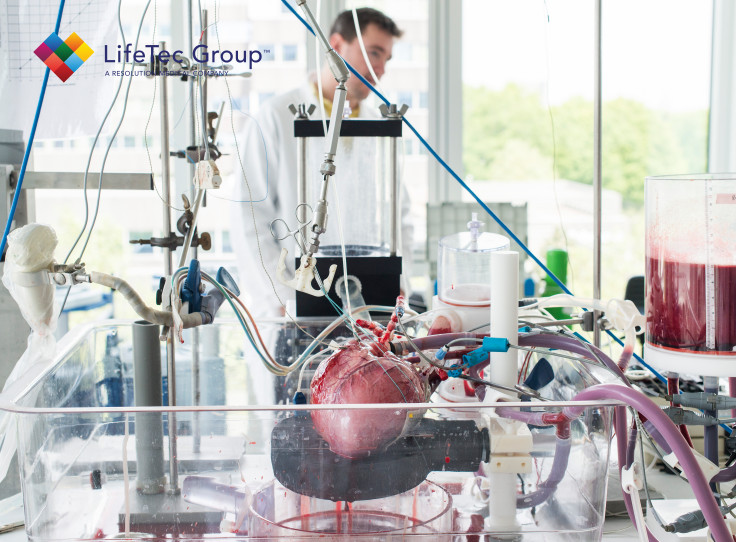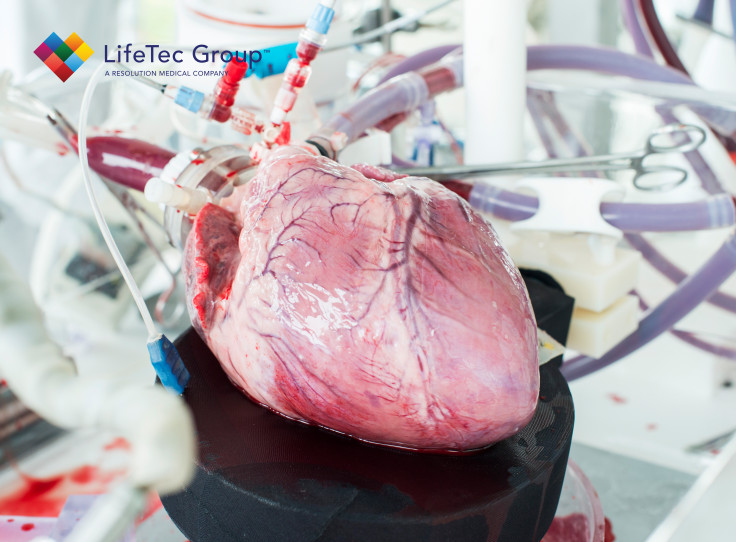LifeTec Group has worked for years on ex situ heart perfusion (ESHP) with our PhysioHeart platform. ESHP has emerged as a promising technique for resuscitation and quality assessment of donor hearts in clinical heart transplantation. However, a common challenge encountered during ESHP is the decline in myocardial function and graft quality due to various factors such as oxidative stress, inflammation, endothelial dysfunction, and metabolic perturbations.
To address these challenges, this study developed a more optimized, cardioprotective normothermic perfusion approach and evaluated the effects using the PhysioHeart platform. This approach aims to mitigate the detrimental effects of ischemia-reperfusion injury and metabolic disturbances during ESHP.
The study compared this optimized protocol with a conventional perfusion protocol using porcine hearts in a slaughterhouse model. The optimized protocol included several key components such as an adenosine-lidocaine cardioplegic solution, sub normothermic initial reperfusion and controlled rewarming, hemofiltration, and supplementation of methylprednisolone and pyruvate. In contrast, the conventional protocol utilized a commonly used cardioplegic solution (St. Thomas II) and normothermic initial reperfusion without additional cardioprotective measures.

The Results
Results from the study demonstrated superior myocardial function and attenuated functional decline in hearts subjected to the optimized protocol compared to those in the conventional group. Notably, the optimized protocol maintained or even improved myocardial function over the course of normothermic perfusion, indicating enhanced preservation. Furthermore, the study highlighted the importance of perfusate composition and temperature management in optimizing graft preservation. By carefully modulating the biochemical environment and temperature during perfusion, researchers were able to mitigate the adverse effects of ischemia-reperfusion injury and metabolic perturbations, leading to improved graft quality.
The new protocol significantly enhances the reliability and perfusion times of the PhysioHeart platform for research purposes. By implementing a further optimized, cardioprotective perfusion approach compared to conventional protocols, the PhysioHeart platform demonstrates improved myocardial performance and attenuated functional decline during normothermic ESHP.

What is in it for you?
The PhysioHeart platform is a very accessible and versatile ex-vivo beating heart platform developed at LifeTec Group™ that we use to support research and feasibility studies. Protocols and measurements that are more difficult to conduct in-vivo, can be evaluated using this platform. Additionally, since there is no reliance on living subjects, this animal-friendly method can be swiftly employed to obtain results in a short timeframe and thereby accelerating the progress of your project. Our team has abundant experience in many interventional studies, and our strength is in re-creating the experimental setting that you need with the PhysioHeart™ as a basis.
If you are working on a cardiac intervention and are ready for acute animal studies, or don't get the results from in-vivo studies that you were hoping for, our team is here to help you to gain valuable insights! Feel free to reach out for more information.
Vervoorn, M. T., Ballan, E. M., Van Tuijl, S., De Jager, S. C., Dengler, S. E. K. G., Sluijter, J. P., Doevendans, P. A., & Van Der Kaaij, N. P. (2023). A Cardioprotective Perfusion Protocol Limits Myocardial Functional Decline during Ex Situ Heart Perfusion. JHLT Open, 100042. https://doi.org/10.1016/j.jhlto.2023.100042
Interested in more about what we do at LifeTec Group? Contact us!
Call at +31 40 2989393 Or e-mail us
